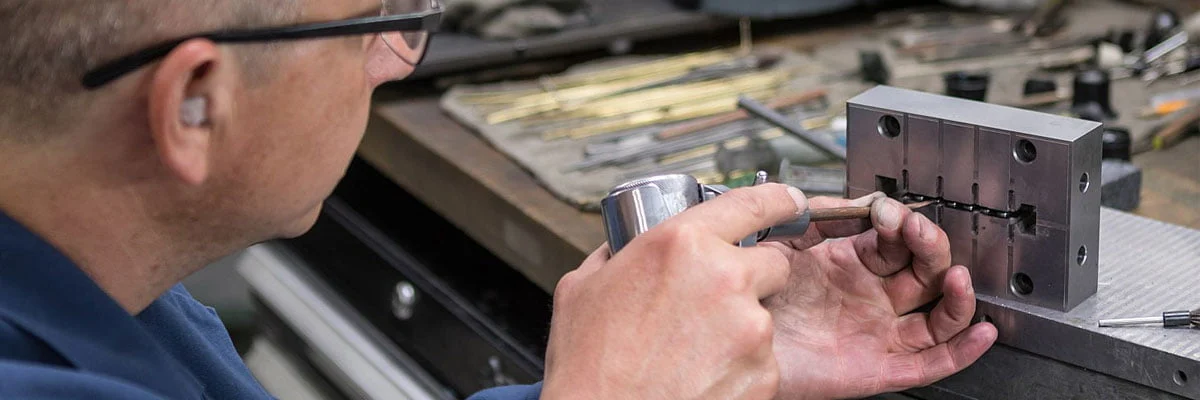
Plastic Injection Mould Polishing Processes
Introduction:
Maintaining a smooth and faultless surface finish is critical for making high-quality plastic items using injection moulding. Mould polishing is an important part of this process. R.D Mould & Industries is a leading injection mould manufacturer in India. In this blog, we discuss what mould polishing includes, explain its importance in plastic injection moulding, look into various polishing processes, and provide useful tips for attaining the best results.
What is Mould Polishing?
Mould polishing is a specialized technique used to refine the surface of plastic injection molds. It involves the removal of imperfections, such as tool marks, scratches, and surface roughness, to create a smooth and polished finish. The process requires precision and attention to detail to ensure the mould's surface is flawless, which, in turn, translates into high-quality plastic parts.
Importance of Plastic Injection Mould Polishing:
Enhancing Part Appearance: A polished mold surface results in plastic parts with a superior aesthetic appeal. The smooth finish minimizes the visibility of flow lines, sink marks, and other surface defects, improving the overall appearance of the final product.
Preventing Defects: Proper mould polishing reduces the risk of defects such as flash, burrs, and sticking. By eliminating rough spots and irregularities, the polished surface facilitates efficient material flow during injection moulding, preventing issues that can compromise part quality.
Extending Tool Life: Polishing the mold surface reduces friction and wear, prolonging the tool's lifespan. A polished mold experiences less stress and strain, resulting in increased durability and reduced maintenance requirements.
Types of Plastic Injection Mold Polishing Processes:
Diamond Polishing: Diamond paste or diamond-impregnated polishing compounds are used to achieve high-quality finishes. This process is suitable for intricate mould surfaces that require exceptional precision and a mirror-like shine.
Stone Polishing: Natural stones, such as Arkansas stones and India stones, are commonly used in this method. Stone polishing is effective for removing moderate imperfections and achieving a smooth finish on less intricate mold surfaces.
Abrasive Paper Polishing: This process involves using progressively finer grits of abrasive paper to smoothen the mold surface. Abrasive paper polishing is ideal for molds with larger surface areas and relatively fewer intricate details.
Plastic Injection Mold Polishing Tips:
Start with Proper Mold Design: A well-designed mold with smooth contours and minimal sharp edges is easier to polish. Attention to mold design can prevent the formation of hard-to-reach areas that may complicate the polishing process.
Use the Right Tools and Materials: Select appropriate polishing tools, compounds, and abrasives based on the type of mold surface and desired finish. Using high-quality materials and tools ensures consistent and effective polishing results.
Follow a Progressive Polishing Sequence: Begin with coarse abrasives or stones and gradually progress to finer ones. This sequential approach helps remove larger imperfections first, reducing the risk of introducing new scratches during subsequent stages.
Maintain Cleanliness and Lubrication: Keep the mold surface clean during polishing to avoid contamination and ensure an accurate assessment of the progress. Lubricants, such as polishing oils or pastes, aid in achieving a smooth finish and prevent overheating.
Pay Attention to Detail: Carefully inspect the mold surface at each polishing stage, focusing on eliminating any remaining imperfections. Take the time to address any surface irregularities thoroughly, as they can affect the final part quality.
Conclusion:
Plastic injection mould polishing plays a vital role in achieving high-quality plastic parts with flawless surface finishes. From enhancing part appearance to preventing defects and extending tool life, the benefits of mold polishing are numerous. By understanding the different polishing processes and following these essential tips, manufacturers can optimize their plastic injection molding. We manufacture various types of hardware moulds including Plastic Bib Cock Mould, Plastic T Handle Tap Mould, Plastic R Handle Tap Mould, Plastic Angle Cock Mould, Plastic Swan Cock Mould, Plastic T-Cock Mould, Plastic Push Flow Cock Mould, Plastic Cello Cock Mould, Plastic RO Tap Mould, Plastic Pan Bib Cock Mould, Plastic Polo Tap Mould, Coupler & Reducing Coupler Mould, PVC Elbow Mould, PVC Tee Mould, PVC Ball Valve Mould and more.

